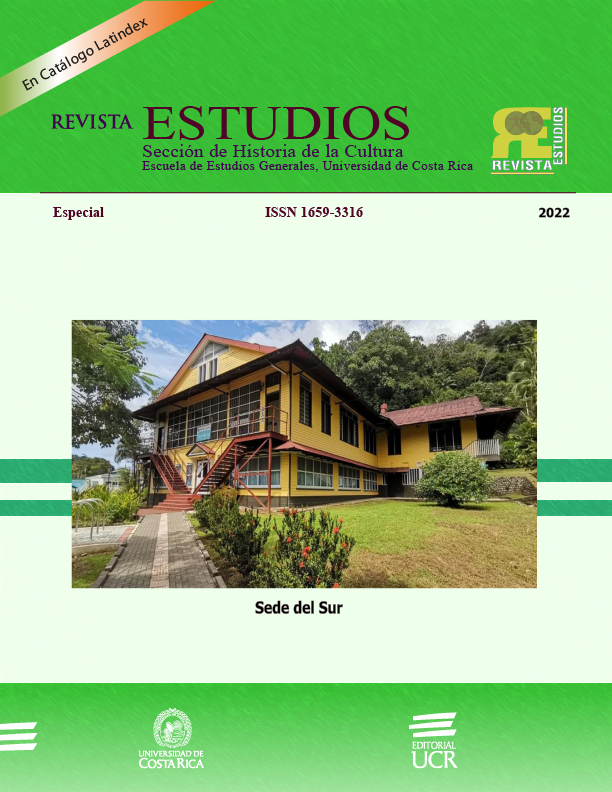Abstract
This article is an account of the prodigia and portenta registered by the roman historian Titus Livius for the Key period of roman expansion to the East: the first two roman-macedonian wars. The period of our attention coincides as well with a very important part of the Second Punic War (218-201 B.C.). We develop in this article a symbolic analysis of some of these supernatural manifestations.
References
Bibliografía
Bonfante, G y Bonfante, L. (2002). The Etruscan Language. Manchester: Manchester University Press.
Buck, C.D. (1904). A Grammar of Oscan and Umbrian: With a collection of inscriptions and a glossary. Boston: The Atheneum Press.
Cirlot, J.E. (1997). Diccionario de símbolos. Barcelona: Ediciones Siruela.
Eliade, M. (1982). A History of Religious Ideas.Vol.2. From Gautama Buddha to the Triumph of Christianity. Chicago: University of Chicago Press.
Eliade, M. (1972). Tratado de Historia de las Religiones. México: Editorial Era.
Eliade, M. (1974). Tratado de Historia de las Religiones. Vol I y II. Madrid: Ediciones Cristiandad.
Hammond, NG.L. y Scullard, H.H. (1991). The Oxford Classical Dictionary. Oxford: Clarendon Press.
Lara Peinado, F. (2007). Los etruscos. Pórtico de la Historia de Roma. Madrid: Anaya.
Linderski, J. 1995. “Roman Religion in Livy.” In W. Schueller (ed.) Livius.Aspekte seines Werkes, Konstanz 1993: 608-625. Recuperado desde: https://www.academia.edu/33894166
Macdonell, A.A. (2005). A practical Sanskrit Dictionary. New Delhi: Manohar.
Moure Casas, A. (1983) “Notas críticas sobre algunos pasajes de la IV década de T.Livio”. En: Dialnet. 18.Cuadernos de Filología Clásica. Año 1983. Número 18: 217-223. Recuperado desde: https://dialnet.unirioja.es/ejemplar/137667
Pallotino, M. (1984). Etruscologia. Milano: Editore Ulrico Hoepli.
Rasmussen, S.W. (2000). Cicero’s stand on Prodigies. A Non-existent Dilemma ? En : Lorsch, R y Isager, gfgJ (eds.) Divinitation & Portents in the Roman World. Gylling: Odense University Press.
Saglio, E et al. (1877-1919). Dictionaire des Antiquités Grecques et Romaines. Paris : Hachette.
Santangelo, F. (2013). Divination, Prediction and the End of the Roman Republic. Cambridge: Cambridge University Press.
Schulz, C. (2010) Divination and Diviners. En The Oxford Encyclopaedia of Ancient Greece and Rome. (1 ed,Vol. I, 527 pp.). Oxford: Oxford University Press.
Schulz, C. (2006). Religion in Republican Italy. Cambridge: Cambridge University Press.
Scullard, H.H.(1980). A History of the Roman World 753-146 B.C. London: Routledge.
Warrior, V. (2006). Roman Religion. Hong Kong: Cambridge University Press.
Warrior, V. (2002). Roman Religion. A Sourcebook. Newboyport MA: Focus Publishing.


